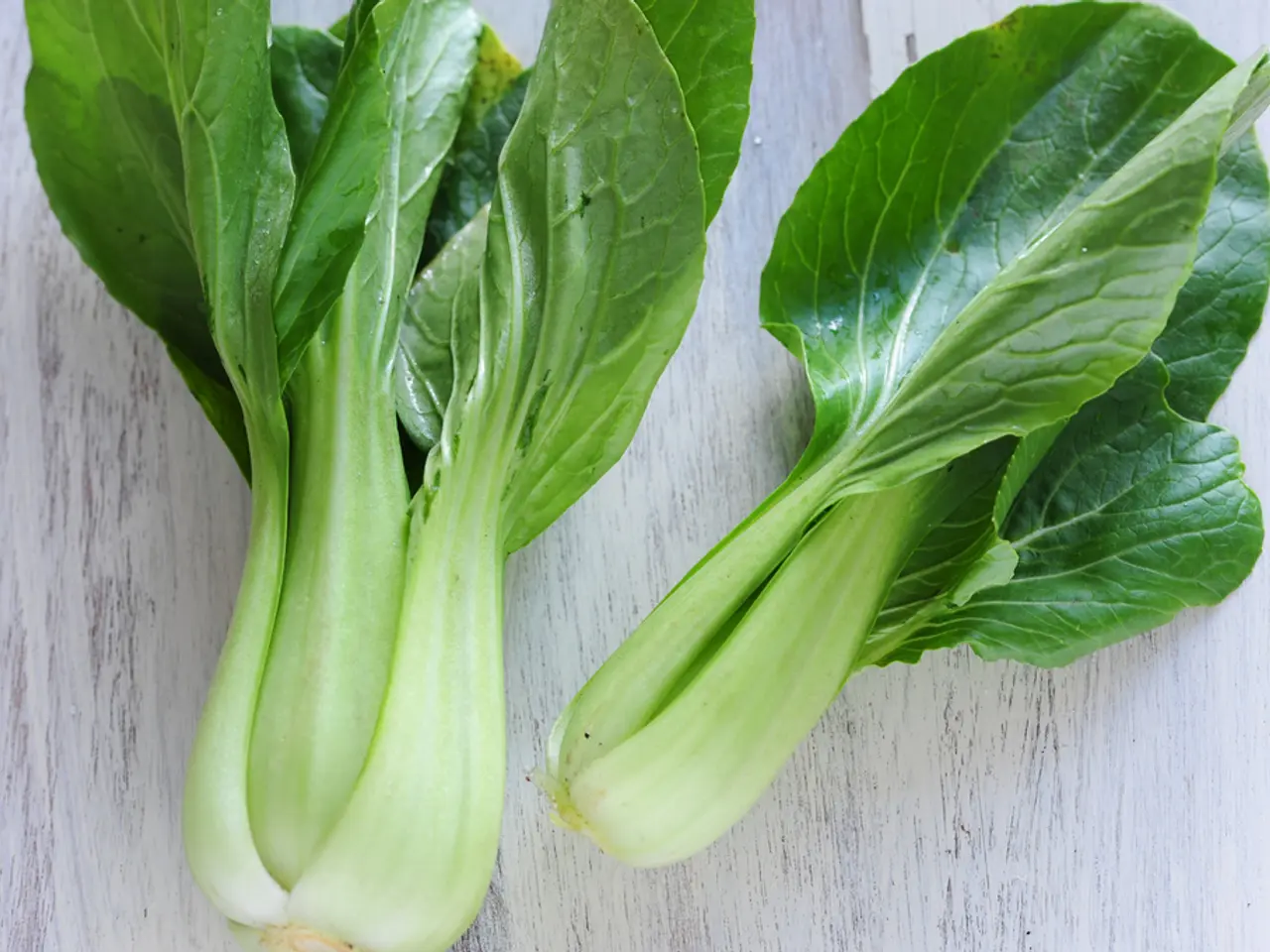Unheralded Green Vegetable: Rich in Cancer-Prevention Compounds and Abundant in Magnesium, Calcium, and Vitamin C
Turnip greens, often considered a byproduct in farming, are making a name for themselves as a sustainable and nutrient-dense superfood. With their high vitamin K content, substantial calcium, good vitamin C, fiber, and a variety of B vitamins and minerals, these greens offer a wealth of benefits for overall wellness.
From an environmental perspective, turnip greens are a smart choice. By utilising them, we can reduce food waste and maximise the environmental investment in growing the crop.
Nutritionally, turnip greens stand out for their excellent vitamin K levels, which are crucial for bone health and osteoporosis prevention. They also provide substantial calcium, good amounts of vitamin C, fibre, and various B vitamins and minerals that support metabolism, cardiovascular health, and oxygen transport.
Compared to other trendy superfoods such as sweet potatoes and rutabagas, turnip greens offer a lower-calorie, nutrient-dense alternative. While sweet potatoes are richer in vitamin A and offer more calories and carbohydrates, turnip greens provide a superior source of vitamin K and calcium. Rutabaga similarly offers fibre and vitamin C but does not match the vitamin K density of turnip greens.
Health benefits of turnip greens include bone health support via calcium and vitamin K, immune system enhancement due to vitamin C and other antioxidants, digestive health improvement through fibre content, potential cancer protection effects through glucosinolates, and cardiovascular health benefits via potassium and antioxidant support.
Turnip greens' standout feature is their high vitamin K, which supports bone density and cardiovascular health by helping regulate blood clotting proteins. They also contain bioactive compounds glucosinolates and isothiocyanates, which have antioxidant and potential anti-cancer properties.
Incorporating turnip greens into your diet can be made more manageable by starting small, such as adding a handful to your regular salad mix or including them in a soup you're already making. Acid like apple cider vinegar, lemon juice, or balsamic vinegar can cut through the bitterness and enhance the flavour profile of turnip greens.
Timing matters when it comes to preserving the nutritional content of turnip greens, with light cooking methods like quick sautéing or steaming preserving most of the vitamin content while making the greens more digestible. Seasonal eating can make turnip greens more appealing, as they're at their best in cooler months when their natural bitterness feels more appropriate to the season's heartier flavours.
In summary, turnip greens rank well among superfoods, especially for their vitamin K content and diverse nutrients supporting bone, immune, and cardiovascular health. They offer an excellent value proposition, being much less expensive than trendy superfoods while offering superior nutritional density. Regular consumption of cruciferous vegetables, including turnip greens, correlates with reduced risks of various types of cancer and cardiovascular disease mortality across different populations and genders. So, the effort to develop a taste for turnip greens is a worthwhile investment in long-term wellness.
- Science has uncovered the nutritional benefits of turnip greens, a byproduct often overlooked in farming, making them a sustainable and health-focused choice for overall wellness.
- Medical-conditions, such as chronic diseases and neurological disorders, may find relief through the consumption of turnip greens due to their antioxidant properties and potential anti-cancer effects.
- Men seeking to improve their health can benefit from including turnip greens in their diets, as they are rich in vitamins and minerals essential for metabolism, cardiovascular health, and oxygen transport.
- Womens-health can also be supported by consuming turnip greens, as their high vitamin K and calcium content contribute to bone health and osteoporosis prevention.
- Parents can encourage healthy eating habits in their children by incorporating nutrient-dense superfoods like turnip greens into family meals, thus fostering a culture of lifestyle and health-and-wellness consciousness.
- Fitness-and-exercise enthusiasts can enhance their performance with a balanced diet that includes vitamin K-rich turnip greens for cardiovascular health and effective nutrient absorption.
- Skin-care can be improved through essential vitamins and minerals found in turnip greens, promoting optimal skin health and repair.
- Nutrition experts advise leveraging turnip greens for their high vitamin K levels, substantial calcium, and variety of B vitamins and minerals to support overall wellness.
- For personal-growth and educational purposes, one can delve deeper into the benefits of turnip greens and their impact on global-cuisines, food-and-drink preferences, and sustainable-living practices.
- Kitchen-enthusiasts can expand their repertoire with various recipes incorporating turnip greens into skin-care concoctions, healthy-cooking techniques, and gourmet gardening ventures.
- Homeowners can make a lifestyle change towards interior-design preferences that reflect their growing interest in sustainable living, using turnip greens as part of their home-and-garden decor.
- The health-conscious consumer can make informed decisions through product-reviews and learning resources on turnip greens, tailoring their grocery shopping choices to optimize wellness.
- Goal-setting can also be bolstered by integrating turnip greens into your weekly meal plans, fostering a balanced and nutritionally rich diet that supports overall health, fitness, and lifestyle goals.
- Shopping for turnip greens can be an opportunity to explore the offerings of different cuisines, learning more about the unique flavors and health benefits of diverse global-cuisines, such as Indian, Thai, or Middle Eastern cuisine.
- One can also engage in creative self-development activities, such as experimenting with different cooking techniques for turnip greens, or using them in unique gardening endeavors, such as growing your own crop of turnip greens.
- In the era of deals-and-discounts, exploring the nutritional benefits and versatility of turnip greens can result in improved health, while also maximizing economic value through cost-effective consumption and innovative uses.




